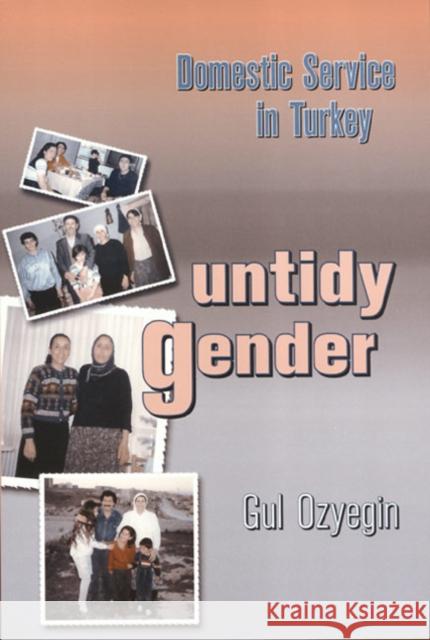Untidy Gender: Domestic Service in Turkey » książka
Untidy Gender: Domestic Service in Turkey
ISBN-13: 9781566398077 / Angielski / Twarda / 2000 / 289 str.
Untidy Gender takes readers into the interconnected worlds of Turkish maids and the women who employ them, tracing the incorporation of rural migrant women into the interiors of the domestic spheres of the urban middle classes. Firmly grounded in data collected through a representative survey of 160 domestic workers, in-depth interviews, and participant observation in the kinship-based communities of domestic workers, this book forges a new understanding of the complex interaction between gender and class subordination.
Ozyegin traces the lives of two kinds of workers: those from the squatter settlements who work in a number of locations, and those who live with husbands employed as "doorkeepers" or building superintendents in the basements of middle-class apartment buildings. In a literal "upstairs, downstairs" arrangement, the latter women sometimes take on apartment cleaning for clients in the building.
At the center of the book are a number of ironies about patriarchy. On the surface, husbands have absolute control over whether or not their wives work, but some women work in secret, and those "doorkeeper" husbands who allow their wives to work often provide child care themselves. Ironically, the very constraints on the spatial and social mobility of the women creates a labor market in which domestic workers' labor is expensive and not readily forthcoming, which, in turn, gives them a degree of power in negotiating their relationship with their middle-class employers.
Untidy Gender offers insights not only into the gender and class dynamics of Turkish society, but contributes to the refinement of central terms of feminist scholarship and research on work in the informal sector,cross-class relations between women, gender and class inequality, and women's experiences of modernity and urbanization. The author ends with a personal account of her own difficulties with the class tensions of the maid-employer relationship.











